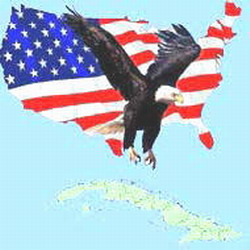US blockade stymies Cubas scientific potential
- Submitted by: admin
- International
- North America
- Health and Medicine
- Science and Technology
- Politics and Government
- 10 / 25 / 2007

Reducing exchange between Cuban and US researchers and impeding Cuba from obtaining new equipment, technologies and knowledge is how the nearly half century blockade seeks to thwart the islands scientific development.
The effect of the blockade on Cuban science was put forth Tuesday by Jorge Luis Fernandez Chemero, director of International Relations for the Ministry of Science, Technology and the Environment (CITMA) at a press conference in Havana.
Fernandez informed that in the first semester of 2007, 16 visa requests were filed with the US Interests Section in Havana for Cuban scientists to travel to the US. Of those he said 12 were denied and only 4, related to United Nations events and conferences in New York, were granted.
The official said that in all the cases where visas were denied the old and irrational pretext was used against the Cubans claiming they would "threaten the security of the United States." He noted that ironically the majority of the visas were to go to Puerto Rico, a US colony.
Fernandez cited the absurd example of researcher Miram del Rosario Labrada of the Tropical Geography Institute, who was to attend the 26th Annual Users Conference of the Environmental Systems Research Institute (ESRI) in San Diego, California.
On that occasion a visa was granted Labrada to enter US territory, but when she arrived at the event the organizers informed her that she couldnt participate because of regulations of the US Treasury Department.
Fernandez also referred to the case of the well known curator and researcher Gilberto Silva Taboada, of the National History Museum, who couldnt receive his $20,000 US prize, awarded him last June for his book Los Murcielagos de Cuba (Cubas bats). The book was considered the worlds most complete study on the species.
The CITMA official also noted that, today, participation from US scientists at congresses and organized courses in Cuba is minimal, because those who dare to come face punishment including stiff fines from US authorities.
Another way the blockade hurts Cuba is the unprecedented effort to block the participation of Cuba in scientific, technological and environmental programs sponsored by UN organisms, blocking the acquisition of equipment and access to loans.Reducing exchange between Cuban and US researchers and impeding Cuba from obtaining new equipment, technologies and knowledge is how the nearly half century blockade seeks to thwart the islands scientific development.
The effect of the blockade on Cuban science was put forth Tuesday by Jorge Luis Fernandez Chemero, director of International Relations for the Ministry of Science, Technology and the Environment (CITMA) at a press conference in Havana.
Fernandez informed that in the first semester of 2007, 16 visa requests were filed with the US Interests Section in Havana for Cuban scientists to travel to the US. Of those he said 12 were denied and only 4, related to United Nations events and conferences in New York, were granted.
The official said that in all the cases where visas were denied the old and irrational pretext was used against the Cubans claiming they would "threaten the security of the United States." He noted that ironically the majority of the visas were to go to Puerto Rico, a US colony.
Fernandez cited the absurd example of researcher Miram del Rosario Labrada of the Tropical Geography Institute, who was to attend the 26th Annual Users Conference of the Environmental Systems Research Institute (ESRI) in San Diego, California.
On that occasion a visa was granted Labrada to enter US territory, but when she arrived at the event the organizers informed her that she couldnt participate because of regulations of the US Treasury Department.
Fernandez also referred to the case of the well known curator and researcher Gilberto Silva Taboada, of the National History Museum, who couldnt receive his $20,000 US prize, awarded him last June for his book Los Murcielagos de Cuba (Cubas bats). The book was considered the worlds most complete study on the species.
The CITMA official also noted that, today, participation from US scientists at congresses and organized courses in Cuba is minimal, because those who dare to come face punishment including stiff fines from US authorities.
Another way the blockade hurts Cuba is the unprecedented effort to block the participation of Cuba in scientific, technological and environmental programs sponsored by UN organisms, blocking the acquisition of equipment and access to loans.
Source: By Orfilio Peláez, Granma
Comments